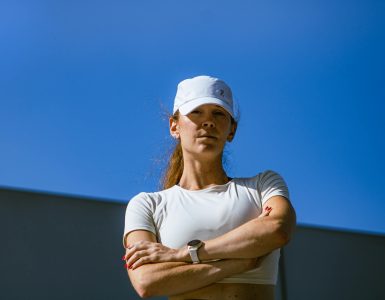Todos conocemos lo básico: comer verduras, hacer ejercicio con regularidad y dormir lo suficiente. Pero, ¿qué hay de los detalles sutiles que a menudo pasamos por alto y que pueden tener un impacto espectacular en nuestra salud y felicidad? No se trata de dietas revolucionarias o entrenamientos extenuantes, sino de cambios sorprendentemente sencillos que pueden marcar la diferencia en tu vida diaria. Veamos algunas ideas menos conocidas que pueden transformar tu bienestar.
1. El poder de tu postura (Más allá del dolor de espalda):
Encorvarse no sólo es malo para la espalda, sino que afecta al estado de ánimo y a los niveles de energía. Los estudios demuestran que una mala postura puede restringir la respiración y hacer que llegue menos oxígeno al cerebro. Esto puede manifestarse como fatiga, niebla cerebral e incluso una disminución de las emociones positivas. Así que siéntate recto, con los hombros hacia atrás, ¡y nota la diferencia! Incluso pequeñas mejoras en la postura pueden suponer un aumento significativo de la energía y el estado de ánimo. Los inesperados cambios en la salud que realmente marcan la diferencia
Consejos prácticos: Programa recordatorios en tu teléfono para comprobar tu postura a lo largo del día. Invierte en una silla de apoyo o utiliza un corrector postural si es necesario. Haz estiramientos sencillos para mejorar la flexibilidad y fortalecer los músculos centrales.
2. El héroe anónimo de la hidratación: Los electrolitos
Todos sabemos que debemos beber agua, pero no basta con tragar H2O. Los electrolitos -minerales como el sodio, el potasio, el magnesio y el calcio- son cruciales para la hidratación, la función muscular, la transmisión nerviosa y los procesos corporales en general. La deshidratación no es sólo sed; puede provocar fatiga, dolores de cabeza, calambres musculares e incluso deterioro cognitivo. El agua sola está muy bien, pero reponer electrolitos, sobre todo después de un ejercicio intenso o de sudar, es vital para un funcionamiento óptimo.
Consejos prácticos: En lugar de depender únicamente del agua, considera añadir una pizca de sal marina al agua (especialmente después de sudar), o disfruta de alimentos ricos en electrolitos como plátanos, agua de coco o naranjas. Las bebidas con electrolitos pueden ser útiles después de entrenar, pero ten cuidado con los azúcares añadidos.
3. El sorprendente vínculo entre el intestino y el cerebro:
A menudo se denomina al intestino "segundo cerebro" por una razón. El microbioma intestinal (los billones de bacterias que viven en su sistema digestivo) desempeña un papel importante en la salud mental. Un desequilibrio en las bacterias intestinales puede contribuir a la ansiedad, la depresión e incluso el deterioro cognitivo. Todavía se está investigando esta conexión, pero las pruebas son cada vez más convincentes.
Consejos prácticos: Céntrese en el consumo de alimentos prebióticos (como espárragos, plátanos y cebollas) que alimentan las bacterias intestinales beneficiosas. Incluya en su dieta alimentos ricos en probióticos como el yogur (compruebe si contiene cultivos vivos) y el kéfir. Considere la posibilidad de tomar un suplemento prebiótico y probiótico tras consultar a su médico.
4. Los beneficios inesperados de la exposición al frío:
Más allá del subidón vigorizante, la exposición regular al frío (por ejemplo, duchas frías o un chapuzón rápido en una piscina fría) puede ofrecer numerosos beneficios para la salud. La exposición al frío puede aumentar el metabolismo, reforzar el sistema inmunitario, reducir la inflamación e incluso mejorar el estado de ánimo al aumentar la liberación de endorfinas. No es para todo el mundo, pero incluso breves periodos de exposición al frío pueden tener efectos positivos.
Consejos prácticos: Empieza poco a poco Prueba a terminar la ducha con un chorro de agua fría de 30 segundos y aumenta gradualmente la duración. Si no te apetece ducharte con agua fría, aplícate compresas frías en el cuello o las muñecas durante unos minutos.
5. El poder de la luz solar (más allá de la vitamina D):
La luz solar es esencial para la producción de vitamina D, pero sus beneficios van mucho más allá. La exposición a la luz solar ayuda a regular el ritmo circadiano (el ciclo natural de sueño-vigilia del cuerpo), lo que repercute en la calidad del sueño y el estado de ánimo general. La luz solar también contribuye a la producción de dopamina, que desempeña un papel crucial en la motivación y la concentración. La falta de exposición a la luz solar puede contribuir al trastorno afectivo estacional (TAE).
Consejos prácticos: Intente exponerse al sol al menos 15 minutos al día, preferiblemente por la mañana. Si vives en una región con luz solar limitada, considera la posibilidad de utilizar una lámpara de fototerapia, pero consulta a tu médico antes de usarla.
6. La importancia de la respiración, a menudo ignorada:
Lo hacemos de forma automática, pero nuestros patrones de respiración influyen significativamente en nuestros niveles de estrés, energía y bienestar general. La respiración superficial y rápida se asocia a la ansiedad y el estrés, mientras que la respiración profunda y lenta activa el sistema nervioso parasimpático y favorece la relajación.
Consejos prácticos:Practica la respiración diafragmática (respiración abdominal) varias veces al día. Busque un lugar tranquilo, coloque una mano sobre el pecho y la otra sobre el estómago. Inhale lentamente por la nariz, sintiendo cómo sube el estómago. Exhale lentamente por la boca, sintiendo cómo baja el estómago. Repítalo durante varios minutos.
7. La conexión mente-cuerpo: El poder de la intención
La forma de enfocar la salud y el bienestar es importante. Una mentalidad positiva, un sentido del propósito y la creencia en su capacidad para mejorar su salud son cruciales para el éxito a largo plazo. Las técnicas de gestión del estrés, como la atención plena y la meditación, pueden ayudar a entrenar la mente para centrarse en el presente y reducir la ansiedad.
Consejos prácticos: Practica la atención plena a diario, aunque sólo sean unos minutos. Concéntrate en tu respiración, en tus sentidos y en el momento presente. Fíjate objetivos de salud realistas y celebra tus éxitos, por pequeños que sean.
Recuerde que éstas son sólo algunas ideas poco conocidas para mejorar su salud y bienestar. Consulte a su médico antes de realizar cambios significativos en su dieta, rutina de ejercicios o régimen de suplementos. Los cambios pequeños y constantes pueden mejorar significativamente su calidad de vida en general.

























Añadir un comentario